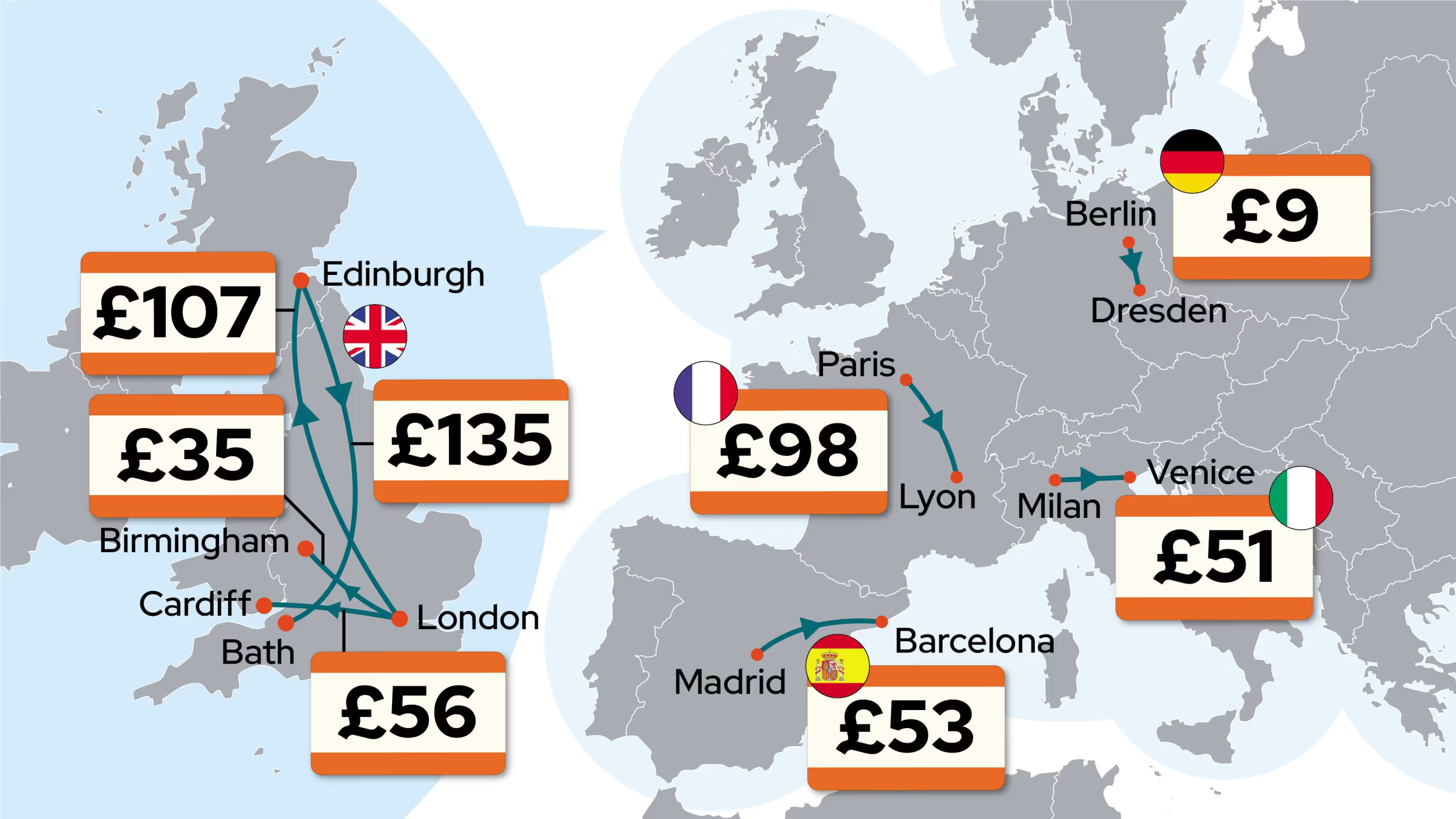Why is commuting so expensive in the UK?
.avif)
For those travelling in the UK, the daily commute has become a significant financial burden, with costs rising significantly faster than wage growth and inflation. Whether travelling by bus, train or car, employees across the country are feeling the pinch of ever-increasing transport expenses. But what is driving up the cost of commuting?
How much does the average UK commuter spend?
Commuters across the UK are facing steeper costs, across most modes of transport. On average:
- Commuting by car would lead to a monthly cost of approximately £421.42 per month; covering things like petrol, parking, tax and insurance.
- Train commuters pay even more, with an average spend of £512.72 per month on train tickets.
For many, such costs can equate to an annual spend in the thousands; one of the more significant expenses after rent or mortgage payments.
Why are train fares so expensive?
One of the leading contributors to rising commuting costs is the increased rise in rail fares. In March 2024, train fares rose by 4.9% on average, further fuelling financial pressure for rail users and widening the gap between rail travel and driving - with some commuters paying just shy of £100 a month more than car users. Yet despite government attempts to regulate price hikes, the cost of train tickets has risen 6% year on year and further alienated those most reliant on the service.

Train fares in England are set to increase again in 2025, with regulated fares rising by 4.6% on 2 March 2025. Additionally, the price of most railcards will increase by £5, further adding to the cost burden for regular passengers.
Although these fare hikes were not mentioned in Chancellor Rachel Reeves’ Budget speech, they were quietly included in the Treasury’s budget document. The increase is one percentage point above the July Retail Prices Index (RPI) inflation rate, meaning commuters will continue to pay more even as wages struggle to keep up.
In total, 45% of rail fares in England, Wales, and Scotland are regulated by the government, including:
- Season tickets covering most commuter routes.
- Some off-peak return tickets for long-distance travel.
- Flexible tickets for travel in and around major cities.
While train operators can set their own prices for unregulated fares, they typically increase by similar amounts, meaning almost all train users will feel the impact of rising costs.
How are parking costs impacting commuting expenses?
For drivers, parking fees add an additional (and not insignificant) cost to the daily commute. London, for example, has the highest parking tariffs in the UK, with an average cost sitting around £15 per day. Even those commuting outside of the capital find the cost of parking to be in the hundreds of pounds per year, if not more!
Monthly Parking Costs in the UK
Are wages keeping up with the cost of commuting?
Despite wages in the United Kingdom growing by approximately 5.6 percent in November 2024 (although adjusted for inflation, wages only grew in real terms by 2.5 percent), for many, commuting still accounts for a disproportionate share of their take home pay.
Those travelling by train are hit hardest; with some individuals spending as much as three months salary per year just getting to and from the workplace. Yet with the price of fuel increasing by 32%, even those driving to work are feeling the pinch.
Are there any affordable alternatives for daily commutes?
With the increasing cost of both rail and road transport, commuters up and down the country are looking for a cheaper alternative. But what other options do people have?
- Public transport costs continue to rise, ruling out trains and buses
- While more predictable in terms of cost, petrol, parking and congestion charges still make driving an unattractive alternative
- Cycling and walking are viable; though not practical for those making a long distance commute
So what is the answer? The reality is that, for most, commuting remains a vital but costly part of working life, with very little in the way of affordable solutions.
So, what can be done to reduce commuting costs?
To ease the financial stress and burden of commuting for workers, there are a few measures that could help:
- Government regulation and subsidies for public transport to prevent excessive price hikes
- Employer-sponsored commuter assistance, like corporate shuttle services to reduce the reliance on costlier public transport
- Adoption of park and ride schemes to reduce congestion around sites and ensure a more cost-efficient commute
- Flexible working arrangements to reduce the need for costly commutes
Until such time as change and innovation within the landscape of daily commuting occurs, employees within the UK will continue to shoulder the burden of rising costs and forcing difficult decisions around how (if at all) they can get to work.
We help companies and schools achieve their transportation program goals
Corporate shuttles


Warehouse/Distribution


Schools & Universities


Become a partner


Want to know how we can help you?











.avif)
.avif)